Insulation of the garage door is needed to maintain the inside temperature. So, if you want to buy the best types of garage door insulation then we have a perfect guide to help you in choosing the best product.
Types Of Insulation
Quick Navigation
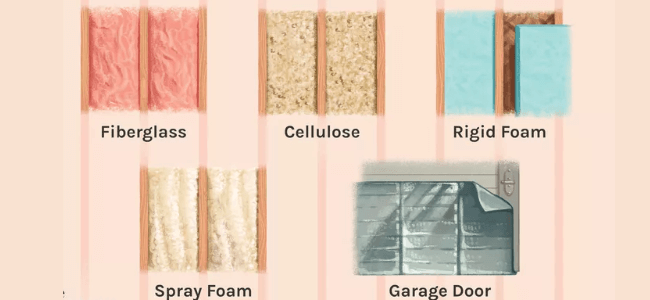
1. Air Sealing
Air sealing is important to insulate the garage door. To insulate the garage door. Fill up the cavities of walls, ceiling, doors, and windows with the insulating material. For air sealing the garage door. You must select the insulating material of a higher R-value. You can use a portable garage air compressor to keep the air out of your garage.
2. Fibreglass
Fiberglass insulation is the most popular type of insulation. This insulation is generally used in homes. The R-value of fiberglass insulation is higher. Compared to other types of insulating material.
The fiberglass insulation is easy to handle and can be placed in the door frames easily. The installation of the fiberglass insulation should be done correctly.
Otherwise, it could be hazardous. These types of insulations can be easily exposed to moisture and can catch fire easily.
To cover walls and ceilings, better to use paper-faced fiberglass insulation bats. Using paper-faced fibreglass gives a more finished look to the surface.
And it won’t have any rough surfaces or exposed areas. Using these bats will also avoid dust from entering. This insulation is less expensive.
3. Cellulose
Cellulose is another popular type of insulation. The popularity of cellulose is growing rapidly. Cellulose is made by recycling newspapers and treated with fire. Then this loose-fill material is blown into the cavities of walls and ceiling.
A blowing machine is used to fill these cavities. Installation of the cellulose in a finished garage is easy. Just by cutting holes in the walls strategically. And fill up the material into the wall cavities.
The flexibility of cellulose is less compared to other types of insulation. Cellulose insulation cannot be applied on wet walls. Whereas applying cellulose on drywalls is easy.
The cellulose is environmentally friendly. This type of insulation is less exposed to fire and provides resistance. However, it is a little expensive.
4. Rigid Foam
Rigid foam insulation is mostly used in all types of garage doors. Installation of rigid foam insulation is easy. The R-value of rigid foam insulation is higher. The thickness of rigid foam insulation is 1/2 to 4 inches.
The size of rigid foam insulation sheets is 4 feet to 8 feet. Rigid foam insulation can be cut into any size for application to the walls.
This insulation is good for thin walls. Insulation of floors, doors, ceiling, and walls are easy with rigid foam insulation.
Applying rigid foam insulation on the garage door reduces noise. This type of insulation is affordable. And provides air tight-insulation. However, it does not provide resistance to insects and pests.
5. Spray Foam
The spray foam insulation provides air seal protection from outer temperature. The R-Value of spray foam insulation is good. It also provides air-tight protection from insects and is pest resistant.
Spray foam is good for filling up the small cavities of walls and ceilings. And it is also used for concrete walkways. It fills up the gaps and provides air insulation. Spray foam insulation is costly. Yet you can get a good spray form insulation kit under your budget.
6. Reflectix
Reflectix insulation sheets can be easily fit into the sections of the doors. These metal ribbings are good conductors of heat. However, it does not provide complete insulation. For complete insulation.
Create a seal on the side and top of the doors and then integrate it with a weather seal strip. Also, seal the bottom and gaps of the garage door.
Doing this will provide complete insulation. Also, it will increase the durability of the garage door. It also provides resistance to noise.
7. Radiant Barriers
The radiant barriers insulation is affordable. The cost of the radiant barriers is comparatively half of the foam insulation. The radiant barrier is a type of insulation that act as shield protection. This insulation reflects back the heat waves. The R-value of the radiant barriers is low.
8. Vinyl Back
Vinyl back insulation is commonly used insulation. Sheets of polystyrene are applied to insulate the garage door. The exposed areas of the garage door are covered with thick wallpaper material.
It acts as a barrier and provides insulation. The R-value of the Vinyl back insulation is between 6-7. Vinyl back insulation is easy to install and is light in weight. Vinyl back insulation is affordable.
9. Steel Back
To insulate the garage door, a steel back polystyrene insulation sheet is used for insulation. To insulate the exposed areas of the garage door, a layer of steel is used to cover the facing and side areas of the door.
The steel back insulation is light in weight and is more durable. The R-value of the steel back insulation is 10-12. The installation cost of the steel back insulation is slightly higher. Compared to vinyl back insulation.
10. Steelback Polyurethane
This type of insulation is similar to steel back insulation. In this type of insulation, polyurethane is used instead of polystyrene panels. To insulate the doors of the garage, polyurethane is injected inside the doors in the form of liquid.
When polyurethane comes in the contact with air. It starts expanding and becomes solid and fills up the empty space. When it comes in the contact with air, it starts becoming hard and provides insulation.
The R-value of the steel back polyurethane is higher. Compared to other types of insulators. The value is between 18-19. Installation of this insulation is easy and it is tough and durable.
What Insulation Is Best For Garage Door?
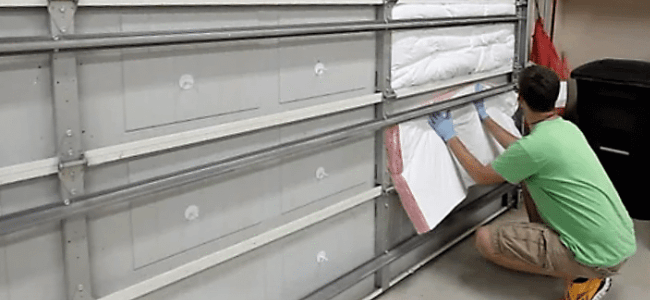
Fiberglass and steel back are the best insulators. These are the most popular type of insulation for garage doors. The R-value of fiberglass and steel back insulators is higher. These types of insulators are durable and provide greater strength to the doors.
They are affordable and provide efficient insulation to homes. Applying these insulation sheets is easy and it gives complete protection. These insulations are good at providing noise reductions.
There are two types of steel back insulations. Polystyrene and Polyurethane insulations. The R-value of both insulations is higher.
Polyurethane is injected into the cavities of walls and ceilings in a liquid form. After contacting it with air it becomes hard. It provides complete insulation. Along with the doors insulations get good window insulation for the garage windows.
Why Should You Insulate Your Garage Door?
There are various benefits of insulating the garage door. It forms the protecting layer at the surface of the door and prevents heat or cold to enter the garage. Insulating the garage door saves energy and maintains the temperature inside.
Insulating the garage door also helps in noise reduction. Insulating the garage doors is cost-effective. When you insulate your garage door it improves the strength of your door. It provides a comfortable experience at home.
Benefits
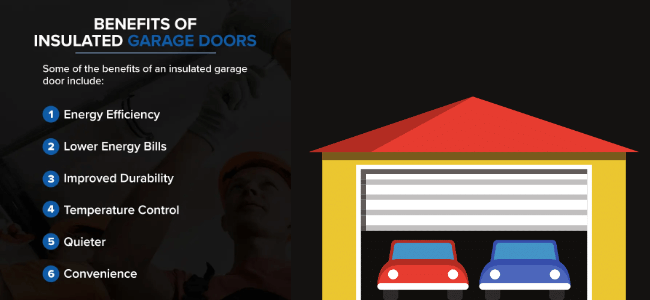
The following are the benefits of garage door insulation:
a. Cost-Effective
Garage door insulation is cost-effective. Insulating the door helps you in maintaining the inside temperature of the garage. It saves energy costs by protecting it from the outer environment.
b. Prevents Energy Loss
An insulated garage door prevents the loss of heat or air. Having an insulated door provides a safe and comfortable environment. Insulation protects the garage from a different climate.
c. Improves Property Value
Installing garage door insulation is like an investment. It saves you energy costs and increases the value of your property at the time of selling.
d. Energy Efficient
Garage door insulation increases the energy efficiency of the home. Insulation maintains the temperature. It prevents the hotter air to enter inside and keeps the garage cool. Installing the insulation reduces the amount of energy. Which is required to maintain the home temperature.
e. Noise Reduction
Insulating the garage doors helps in noise reduction. It absorbs the noise and vibrations. Insulating the doors prevents the outside noise enter into the garage.
f. Increases Strength
Insulating the garage doors increased the strength of the door. Insulating doors are more durable compared to non-insulated doors. Insulating garage doors provide long-lasting resistance from heat and wind. It improves the durability of the door.
g. Increases Durability
Have insulation at your garage door. Enhances the durability of the door. Insulated doors have many layers of steel and other insulating material and it provides better resistance from damage.
Opening and closing of the doors can break the springs and other components of the garage doors. However, with the proper insulation, it can prevent breakage. And it improves the durability of the door.
How Hot (or Cold) Can Your Garage Get?
Depending upon the temperature outside. If the outside is cold and the temperature is 10 degrees. Then with a non-insulated door, the inside temperature would be 20 degrees.
Whereas, an insulated garage door prevents the transmission of cold air. And it maintains the inner temperature to 30 degrees. Insulated garage doors prevent heat or cold air transmission.
And maintains the inside temperature. Prevention of heat and air. Depends on the type of insulating material used for the insulation. Or you can have a threshold to avoid a heat loss in cold weather.
Good R-Value for a Garage Door?
The R-value is the metric to measure the effectiveness of the insulating material. A good R-value is extremely important. When you select the insulating material for your garage door. R-value describes the insulation.
When the R-value is higher it means it provides better insulation. Lower R-value means the material is a good conductor of heat. Whereas a high R-value means it is a better insulator. Depending upon the type of garbage you have.
Select the R-value accordingly to prevent the transmission of heat or cold air. The R-value ranges from 6 is better. However, insulating material with the value R13 or higher can be heated or cooled easily.
Final Talk
Having insulation at the garage door is necessary. You must carefully select the right insulating material for your garage door. Choose the insulator which is durable and has an excellent R-value. The increased R-value of the garage door insulation provides better resistance. Insulating doors are not very expensive. It does provide comfort and a warm environment at home.

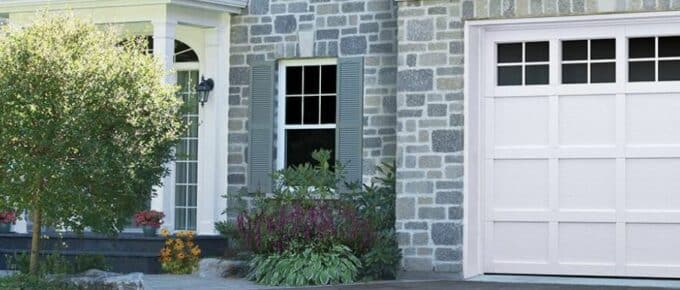
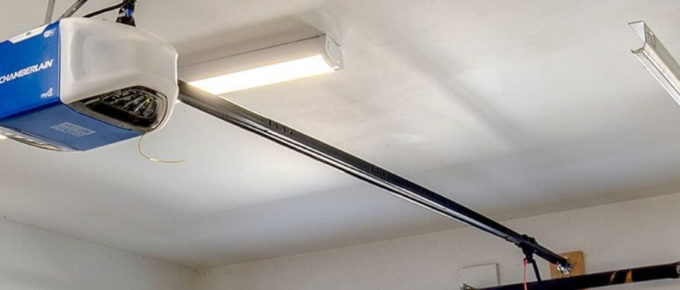
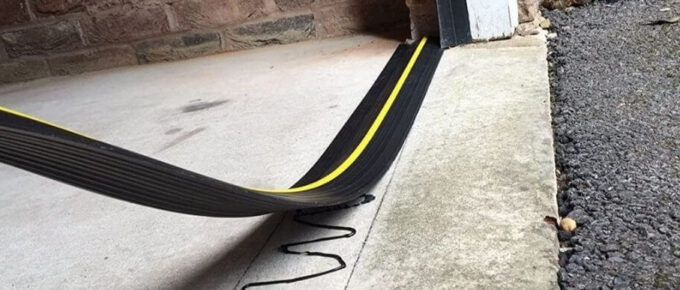
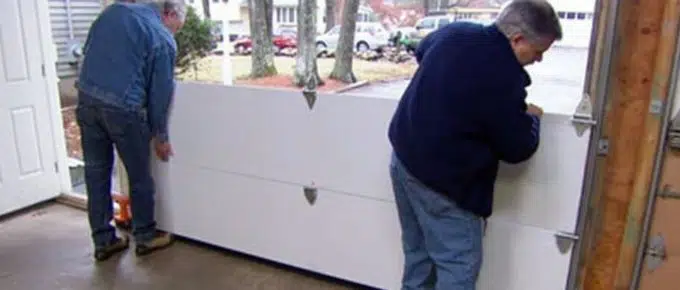


Leave a Reply